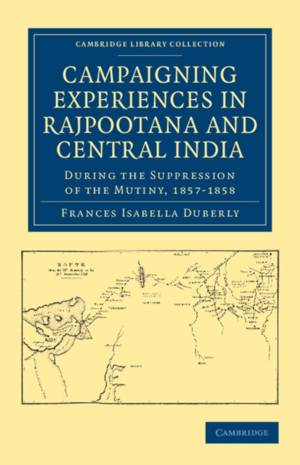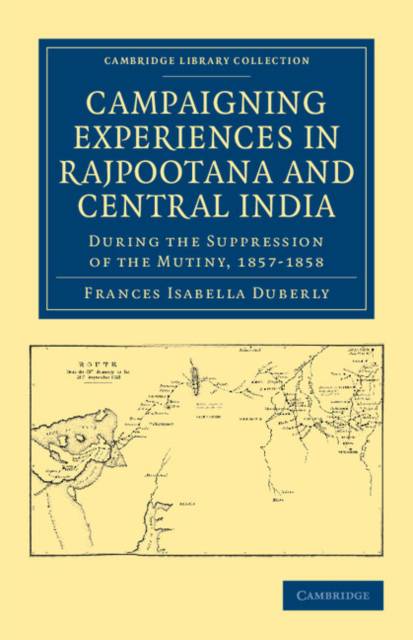
- Afhalen na 1 uur in een winkel met voorraad
- Gratis thuislevering in België vanaf € 30
- Ruim aanbod met 7 miljoen producten
- Afhalen na 1 uur in een winkel met voorraad
- Gratis thuislevering in België vanaf € 30
- Ruim aanbod met 7 miljoen producten
Zoeken
Campaigning Experiences in Rajpootana and Central India
During the Suppression of the Mutiny, 1857 1858
Frances Isabella Duberly
€ 61,45
+ 122 punten
Omschrijving
The diarist Mrs Henry Duberly (1829-1902), born Frances Locke, came to public attention through her Journal Kept During the Russian War, an 1855 account (also reissued in this series) of her experiences accompanying her husband's regiment in the Crimea, often as the only woman present. Her descriptions of military action - including the cavalry charges at Balaklava - and the hardships and gossip of army life, made it a popular success, although a dedication to Queen Victoria was declined. This 1859 volume narrates the Hussars' subsequent posting to India during the Mutiny. Describing the practicalities and privations of a 2,028 mile march through Rajputana from Bombay, and culminating in an account of the battle of Gwalior, including the news of Rani Lakshmi Bai's suicide, it illuminates the nature of military life in this tense period of Indian history, as well as the role of women on both sides of the conflict.
Specificaties
Betrokkenen
- Auteur(s):
- Uitgeverij:
Inhoud
- Aantal bladzijden:
- 276
- Taal:
- Engels
- Reeks:
Eigenschappen
- Productcode (EAN):
- 9781108044752
- Verschijningsdatum:
- 16/02/2012
- Uitvoering:
- Paperback
- Formaat:
- Trade paperback (VS)
- Afmetingen:
- 140 mm x 216 mm
- Gewicht:
- 353 g

Alleen bij Standaard Boekhandel
+ 122 punten op je klantenkaart van Standaard Boekhandel
Beoordelingen
We publiceren alleen reviews die voldoen aan de voorwaarden voor reviews. Bekijk onze voorwaarden voor reviews.











